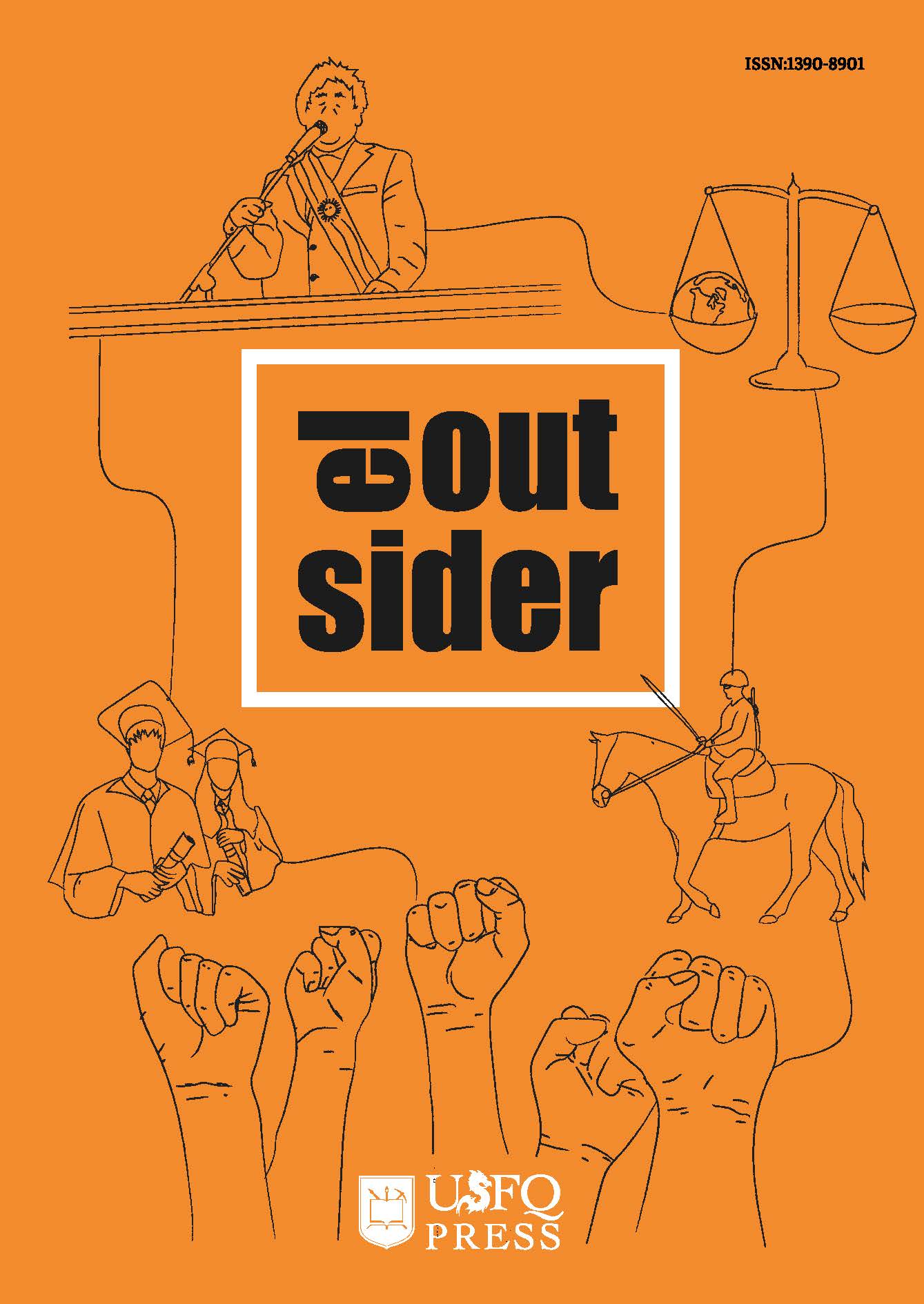Forj(z)ando Israel. El uso de la retórica en la creación y mantenimiento del Estado
Contenido principal del artículo
Resumen
El presente artículo analiza la evolución del Estado de Israel a través de las retóricas utilizadas para justificarse y mantenerse en el sistema internacional, a pesar de las críticas al manejo interno y del conflicto con Palestina. A través del análisis de eventos formativos para la política y el gobierno, se revisan los discursos utilizados, su cómo y por qué, además de los efectos que han tenido en la población. Asimismo, se aborda la actual guerra en Gaza para entender el manejo discursivo con transversalidad a temáticas propias de la experiencia judía antes y después de Israel. Se exploran temas como el Holocausto, la militarización, la raza y etnia, la religión y la identidad nacional.
Detalles del artículo
Citas
Abu-Lughod, Ibrahim A. 1985. “Palestinian Culture and Israel’s Policy”. Arab Studies Quarterly (no. 2/3): 95–103. http://www.jstor.org/stable/41857772.
Ansary, Tamim. 2009. Destiny Disrupted: a history of the world through Islamic eyes. New York: Public Affairs.
Ariely, Gal. 2019. “National Days, National Identity, and Collective Memory: Exploring the Impact of Holocaust Day in Israel”. Political Psychology (6): 1391–1406. http://www.jstor.org/stable/45223198.
Ben-Eliezer, Uri. 1995.“A Nation-In-Arms: State, Nation, and Militarism in Israel’s First Years”. Comparative Studies in Society and History (2): 264–85. http://www.jstor.org/stable/179282.
Brown, Kenneth. 1983. “Iron and a King: The Likud and Oriental Jews”. MERIP Reports (114): 3–13. https://doi.org/10.2307/3010917.
Canetti, Daphna, Gilad Hirschberger, Carmit Rapaport, Julia Elad-Strenger, Tsachi Ein-Dor, Shifra Rosenzveig, Tom Pyszczynski, and Stevan E. Hobfoll. 2018. “Collective Trauma From the Lab to the Real World: The Effects of the Holocaust on Contemporary Israeli Political Cognitions”. Political Psychology (1): 3–21. http://www.jstor.org/stable/45094414.
Divine, Donna Robinson. 2014. “Zionism and the Politics of Authenticity”. Israel Studies (2): 94–110. https://doi.org/10.2979/israelstudies.19.2.94.
Don-Yehiya, Eliezer. 2014. “Messianism and Politics: The Ideological Transformation of Religious Zionism”. Israel Studies (2): 239–63. https://doi.org/10.2979/israelstudies.19.2.239.
El País. 2024. “DIRECTO GAZA | Audiencia en La Haya por la denuncia de Sudáfrica a Israel. | EL PAÍS”. En directo, El País, enero 11, 2024. Video, 3:03:57. https://www.youtube.com/watch?v=9Tc7MzeWpnc.
Falk, Richard. 1983. “Israel and Jewish identity”. Dialectical Anthropology (1/2): 87–111. http://www.jstor.org/stable/29790093.
Gertz, Nurith. 2020.“Who Is a Jew?: Dan Ben Amotz’s Novel To Remember, To Forget”. In History and Literature: New Readings of Jewish Texts in Honor of Arnold J. Band, edited by William Cutter and David C. Jacobson. Brown Judaic Studies (2): 357-367. https://doi.org/10.2307/j.ctvzpv540.36
Glass, Charles. 1975. “Jews against Zion: Israeli Jewish Anti-Zionism”. Journal of Palestine Studies (1/2): 56–81. https://doi.org/10.2307/2535683.
Gutwein, Daniel. 2009.“The Privatization of the Holocaust: Memory, Historiography, and Politics”. Israel Studies (1): 36–64. JSTOR, http://www.jstor.org/stable/30245843. Accessed 10 Dec. 2023.
Lapierre, Dominique, and Collins, Larry. 2011. Oh, Jerusalén. Tradución de Juan Moreno. Octava. Barcelona: Planeta. (Orig. pub. 2006.).
Lentin, Ronit. 2016.“Palestine/Israel and State Criminality: Exception, Settler Colonialism and Racialization”. State Crime Journal, vol. 5, No. 1 (1): 32–50. https://doi.org/10.13169/statecrime.5.1.0032.
Lustick, Ian S. 2017. “The Holocaust in Israeli Political Culture: Four Constructions and Their Consequences: Editor’s Note: This Article Is Followed by Four Comments and a Response by Ian Lustick”. Contemporary Jewry (1): 125–70. http://www.jstor.org/stable/26346572.
Massad, Joseph. 1996. “Zionism’s Internal Others: Israel and the Oriental Jews”. Journal of Palestine Studies (4): 53–68. https://doi.org/10.2307/2538006.
Ofer, Dalia. 2013.“We Israelis Remember, But How? The Memory of the Holocaust and the Israeli Experience”. Israel Studies (2): 70–85. JSTOR, https://doi.org/10.2979/israelstudies.18.2.70. Accessed 10 Dec. 2023.
Schoenmann, Ralph. 1988. Historia Secreta del Sionismo. Barcelona, Marxismo y Acción.
Sergides, Marina. 2012. “Housing in East Jerusalem: Marina Sergides Reports on an Legal Mission to the Occupied Palestinian Territory”. Socialist Lawyer (60): 14–17. JSTOR, https://doi.org/10.13169/socialistlawyer.60.0014. Accessed 10 Sept. 2023.
Shapira, Anita. 2004. “The Bible and Israeli Identity”. AJS Review (2): 11–41. http://www.jstor.org/stable/4131508.
Weinberg, Lee. 2016. “DIY: How to (Not So) Safely Dismantle the Bomb of On-Screen Jewish-Israeli Identity: The Synergies with Art and Television in the Representation of Jewish-Israeli Identity and What Can Be Learned from Them”. Jewish Film & New Media (1): 109–38. https://doi.org/10.13110/jewifilmnewmedi.4.1.0109
Weissbrod, Lilly. “Religion as National Identity in a Secular Society”. Review of Religious Research (3): 188–205. https://doi.org/10.2307/3511814.
Wistrich, Robert S. 1997. “Israel and the Holocaust Trauma”. Jewish History (2): 13–20. JSTOR, http://www.jstor.org/stable/20101298. Accessed 10 Dec. 2023.

